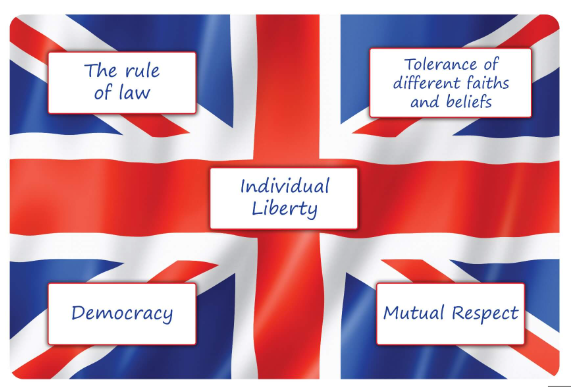- Home
- Curriculum
- British Values
Share This Page
- facebook Share this page on Facebook
- twitter Tweet this page
- pinterest Pin this page
British Values
What are British Values?
Fundamental British Values underpin what it is to be a citizen in a modern and diverse Great Britain valuing our community and celebrating diversity of the UK.
These values are Democracy, Rule of Law, Respect and Tolerance, Individual Liberty.
How are British Values taught?
At Queen Emma’s, we embed the teaching of British Values throughout our whole curriculum. Each term, we dedicate focused days to exploring one of the British Values in depth, providing meaningful opportunities for discussion, reflection, and application. Learning is revisited and built upon each year to strengthen pupils’ understanding and ensure these values are fully embedded in everyday school life.
Curriculum
- Behaviour - Ready Respectful Safe
- Curriculum Intent
- Home Learning - Learning with Parents
- How do we Assess?
- Inclusion
- Our Classes
- Our Curriculum
- Outdoor Learning
- Reading
- Sport and Health
- Subjects: Art and Design
- Subjects: Computing
- Subjects: Design and Technology
- Subjects: Geography
- Subjects: History
- Subjects: Maths
- Subjects: Modern Foreign Language
- Subjects: Music
- Subjects: PE
- Subjects: Religious Education
- Subjects: RSE
- Subjects: Science
- The School Library
- Thrive
- OPAL (Outdoor Play and Learning)
- Enrichment Clubs
- British Values
- Personal Development
- Year 6 Residential 2025
- Express Events
- Mental Health Support Team
- Writing


